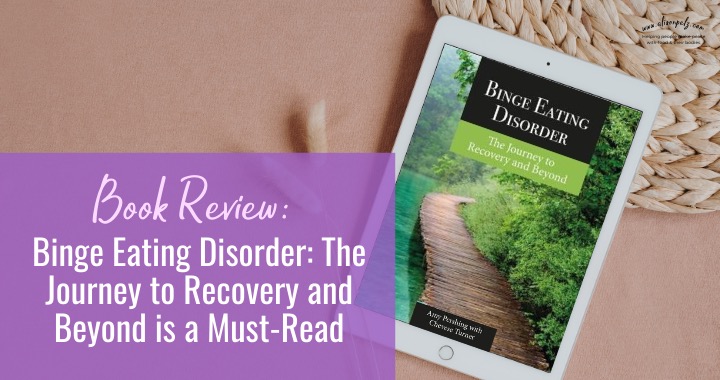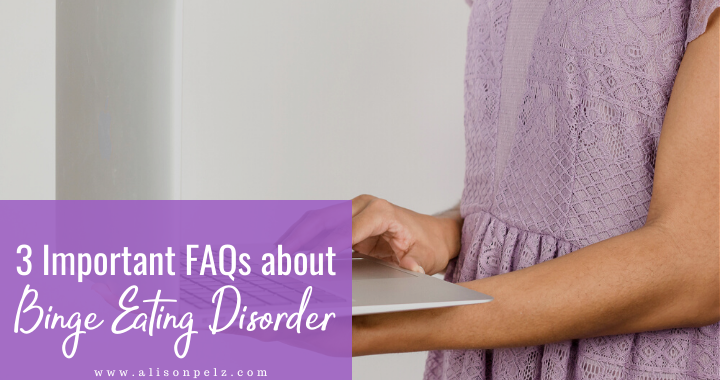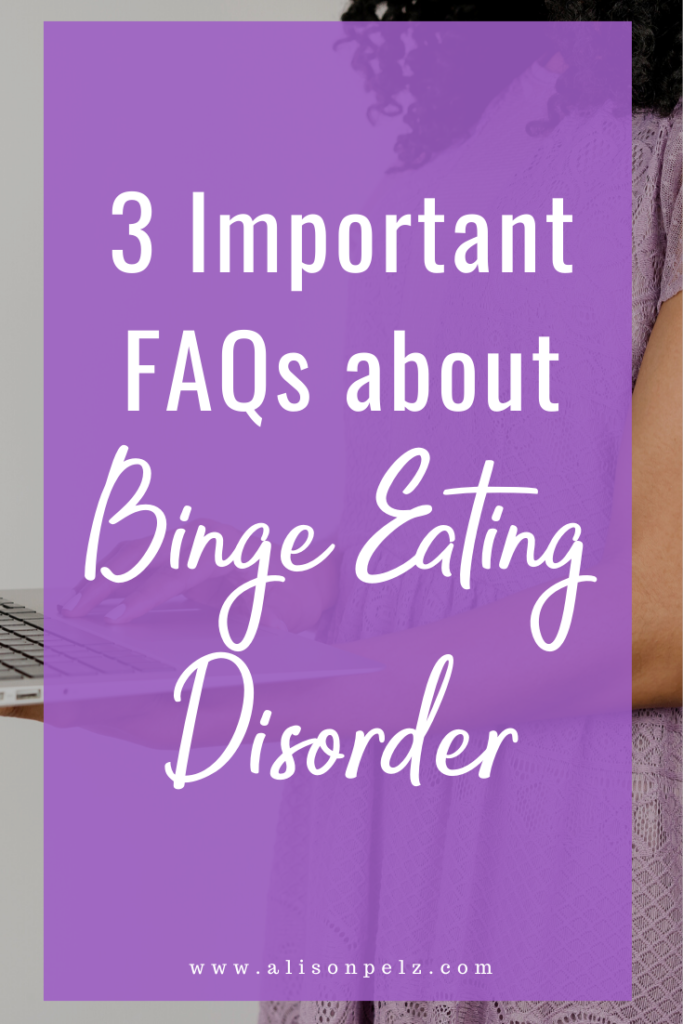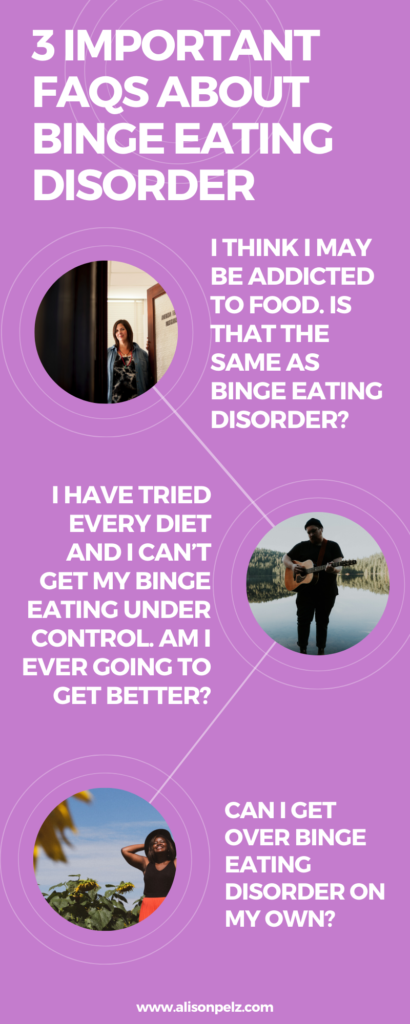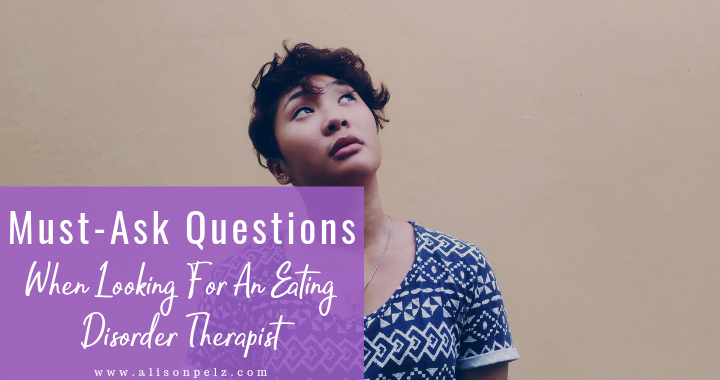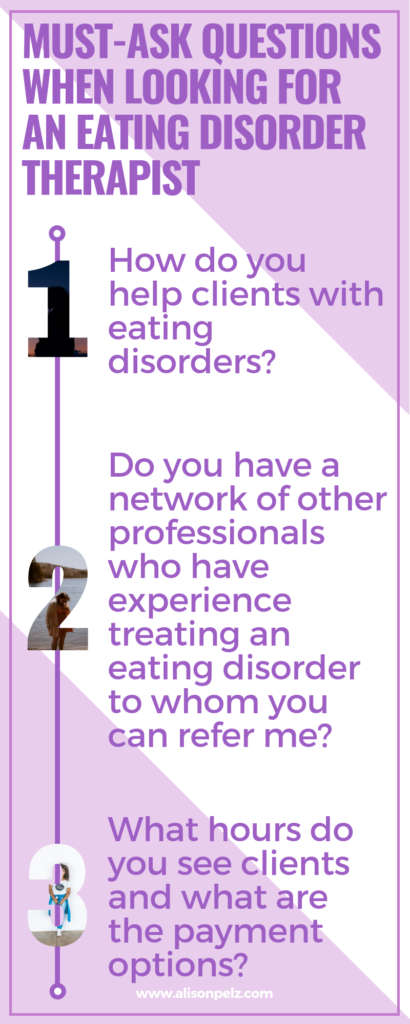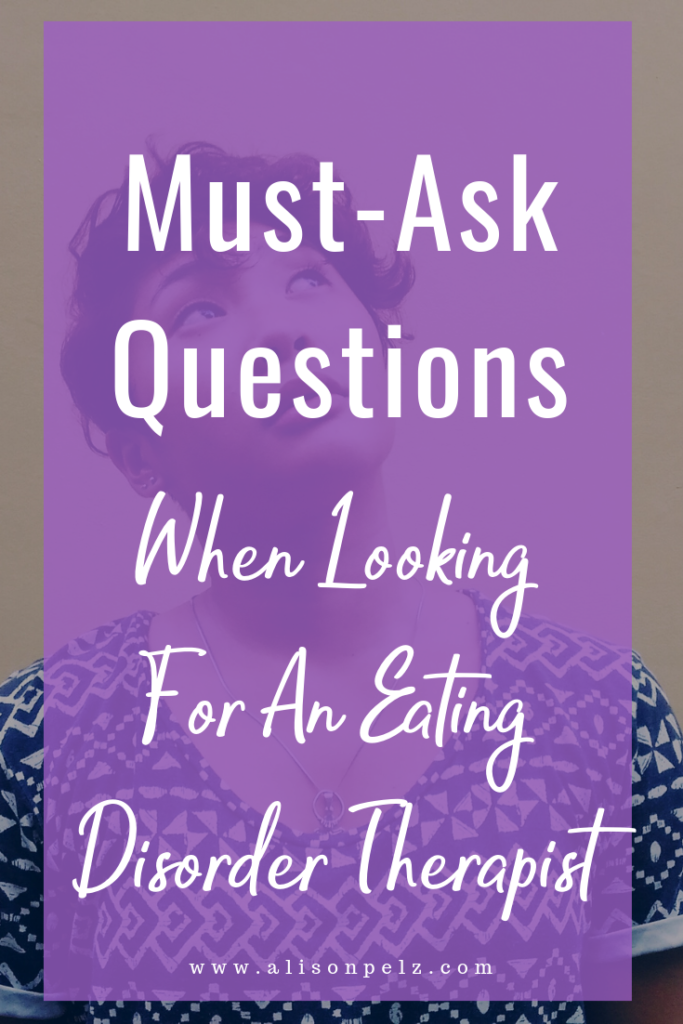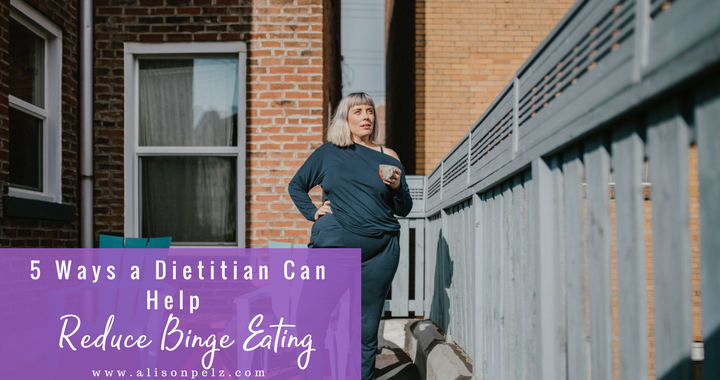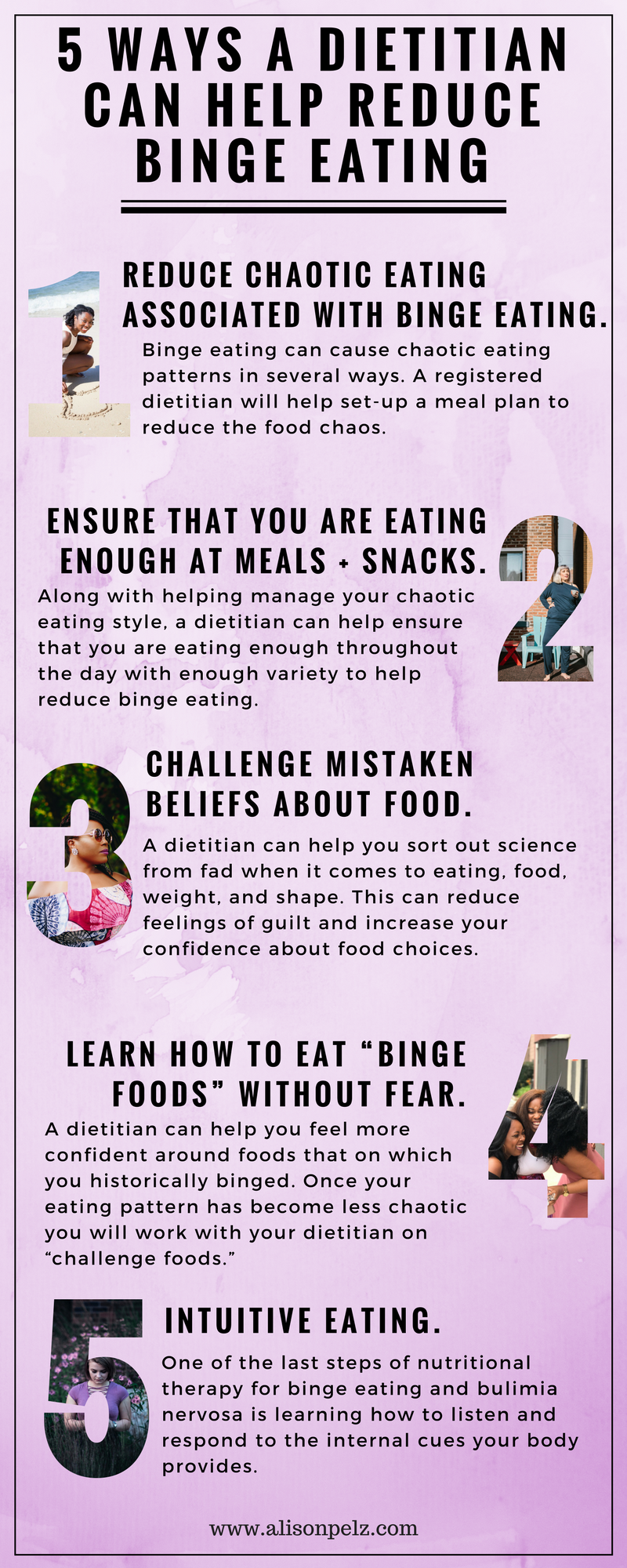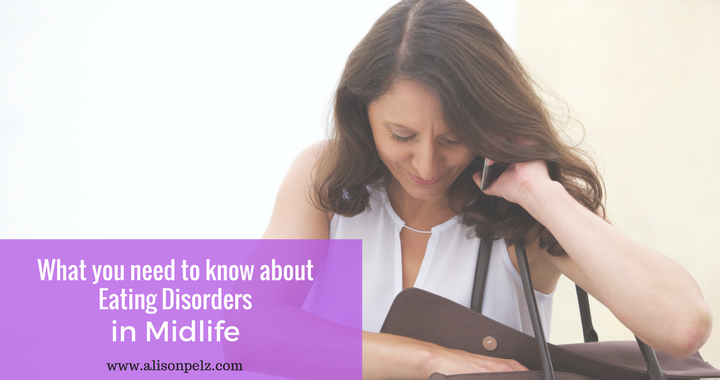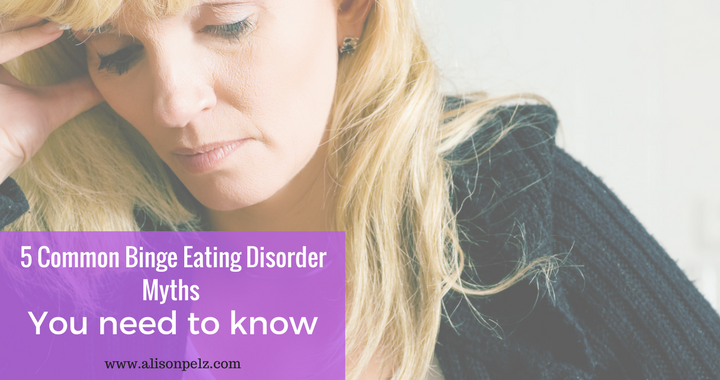Binge Eating Disorder: The Journey to Recovery and Beyond by Amy Pershing with Chevese Turner, seamlessly blends clinical knowledge with the lived experiences of those affected by BED, making it an invaluable guide for individuals experiencing BED and their families. Divided into three parts: understanding BED, addressing its root causes, and finding sustainable recovery strategies, this book is a must read for anyone looking for an insightful and compassionate resource on binge eating disorder (BED).
Understanding Binge Eating Disorder
Binge eating disorder (BED) is the most common eating disorder, it can develop at any age, often in childhood, and can impact people across diverse identities and backgrounds. It is characterized by recurrent episodes of eating unusually large amounts of food in a short period, accompanied by feelings of loss of control.
BED affects an estimated 2.8 million individuals, making it the most prevalent eating disorder in the United States. Despite its high prevalence, BED often goes undiagnosed or misunderstood, in part due to societal weight bias and outdated treatment paradigms.
Understanding Binge Eating Disorder Symptoms
BED is not a one size fits all diagnosis, and can often affect people in unique ways, but there are some hallmark symptoms that are commonly observed, which include:
- Frequent Episodes of Binge Eating:
- Consuming more food than most people would in a similar time frame and situation.
- Feeling unable to stop eating during a binge episode.
- Emotional Distress Around Eating:
- Intense feelings of shame, guilt, or embarrassment during or after binge episodes.
- Experiencing disgust or self-loathing related to eating habits.
- Behavioral Indicators:
- Eating rapidly or at an unusually fast pace.
- Eating until uncomfortably full.
- Consuming large amounts of food even when not physically hungry.
- Preferring to eat alone to hide the behavior from others.
- Physical Symptoms:
- Fluctuating weight due to consistent overeating and undereating.
- Gastrointestinal discomfort or other health issues linked to excessive eating.
If these symptoms occur at least once a week for three months, it could indicate BED, and you should talk to a trusted care provider.
Who experiences Binge Eating Disorder?
BED doesn’t discriminate—it can affect people of any age, gender, race, or socioeconomic background. Please note that people of all body sizes can experience binge eating disorders.
Why is Binge Eating Disorder: The Journey to Recovery and Beyond by Amy Pershing with Chevese such a powerful resource?
- It Addresses the Root Causes:
Authors Chevese Turner and Amy Pershing provide a thorough explanation of how the diet industry, weight bias, and weight stigma all work together to contribute to the development and persistence of eating disorders. Many individuals with BED have endured significant weight stigma and bullying, which often begin in childhood. Tragically, these experiences are pervasive in peer groups, families, and even healthcare settings. In an attempt to avoid further stigma, many people turn to dieting as a way to change their bodies, but this often worsens their relationship with food and deepens the cycle of disordered eating. It is estimated that up to 70% of those experiencing binge eating pursue weight loss services often making the eating disorder worse. They also delve into systemic oppression and its role in fostering BED.The book also makes it clear that effective treatment for BED lies in psychological support and nutritional rehabilitation—not weight loss interventions.
- It Makes Sense of Binge Eating:
Within the chapter “How BED Happens and Why It Makes Sense” Pershing and Turner offer a groundbreaking discussion of the nervous system and its stress response. They explain how binge eating functions as a coping mechanism, helping individuals feel safe during times of stress or overwhelm, which helps to make sense of binge eating as an adaptive (though ultimately unhelpful) response, which in turn can foster self-compassion and reduce the shame often associated with this behavior. - It Offers Inspiring Personal Narratives:
Chevese Turner courageously shares her story of binge eating, starting from her childhood experiences with food. Amy Pershing complements this narrative with her years of clinical expertise, sharing lessons from her work with clients in recovery. These interwoven stories remind readers that they are not alone in their struggles. By reducing isolation and shame, the authors create a sense of solidarity and hope. - It Provides A Roadmap to Recovery:
Binge Eating Disorder: The Journey to Recovery and Beyond offers a framework for improving readers’ relationships with both food and their bodies. Rather than prescribing rigid meal plans, it focuses on reclaiming a sense of self. Chevese Turner and Amy Pershing introduce concepts from Internal Family Systems (IFS) therapy, such as “parts work,” to help readers understand their binge eating behaviors and work toward recovery. They also address body shame and body image distress, reframing the body as a home—not an object to be judged, but a vessel for experiencing life, joy, and even pain.
The authors critique diet culture and thin privilege, empowering readers to navigate these societal pressures while staying true to themselves.
- It Expands Perspectives:
One of the book’s greatest strengths is its ability to broaden readers’ understanding of binge eating. Binge Eating Disorder: The Journey to Recovery and Beyond explores how societal and systemic factors influence BED, and help to shift the focus away from individual blame and toward a more compassionate, holistic view.
I wish I had discovered it earlier—it would have allowed me to recommend it to more clients sooner. Those I’ve shared it with have found it incredibly helpful and affirming. If you are experiencing binge eating please consider reaching out for support.
Whether you’re a generalist clinician seeking to understand better binge eating disorder or an experienced eating disorder specialist, this book deserves a place in your professional library. Once you read it, you’ll feel confident recommending it to clients with BED—and they’ll thank you.
